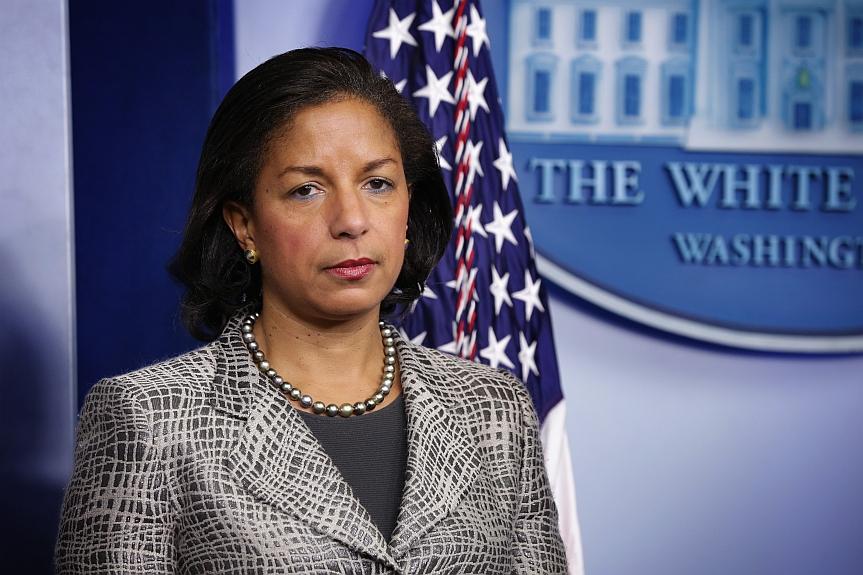Who is to Blame?
Republican and Democratic lawmakers agreed: The State Department under Clinton kept open the Benghazi mission, which employed a few State employees and more than two dozen CIA workers, with little protection amid well-known dangers.
The attack probably could have been prevented if the department had heeded intelligence warnings about the deteriorating situation in eastern Libya, a bipartisan report by the Senate Intelligence Committee said.
Britain closed its Benghazi mission in June 2012, after an attack on the British ambassador’s convoy injured two security guards.
Stevens’s requests for more security, made clear in cables to State Department headquarters that July and August, went unheeded, according to the Senate report, as did those made by his predecessor earlier that year.
But Stevens also twice declined the U.S. military’s offer of a special operations team to bolster security and otherwise help his staff.
The month after the fatal assault, Clinton declared that she had been responsible for the safety of those serving in Benghazi, without acknowledging any specific mistakes on her part.
Did Obama Mislead Americans?
Obama’s opponents are focused on the “talking points,” a memo prepared for lawmakers and for then-U.N. Ambassador Susan Rice to help her get ready for appearances on the Sunday news shows to discuss the attack less than a week after it occurred.
That memo is offered as evidence of a possible White House cover-up. It offers something that’s golden to investigators—a paper trail.
Last year, the administration reluctantly released 100 pages of emails documenting the administration’s editing of the talking points, first composed by the CIA. The final version omitted references to possible al-Qaeda influences in the attack and retained the theory that it grew out of a street protest.
On television, Rice described the attack as a “horrific incident where some mob was hijacked, ultimately, by a handful of extremists.” Since then, numerous investigations have concluded there were no protesters outside the Benghazi compound before the armed assault.
Republicans argue that the administration already knew that. The White House said Rice was giving the best information available from intelligence agencies at that time.
Two months after her TV appearances, the controversy ended Rice’s chance to follow Clinton as secretary of state. Obama instead named her his national security adviser.
Just this April, another email showing the White House’s efforts at political damage control surfaced among documents released under a Freedom of Information Act lawsuit.
Republicans charged that the administration had violated an earlier congressional subpoena by holding back that email by deputy national security adviser Ben Rhodes.
White House press secretary Jay Carney contended that the email, outlining how Rice should answer questions in her TV appearances, focused on the overall Mideast protests, not Benghazi.
The email said one of Rice’s goals is “to underscore that these protests are rooted in an Internet video, and not a broader failure of policy” and also includes the assertion that the Benghazi assault apparently grew out of a street demonstration.
An Unfinished Story
It took nearly two years for the United States to make its first arrest in the case, and Attorney General Eric Holder promised an ongoing investigation “as we work to identify and arrest any co-conspirators.”
Obama promised that Abu Khatallah would face “a court of law and be held accountable for his actions.”
The administration has named two militant groups that officials believe were among the attackers. One is led by a former Guantanamo Bay detainee, Sufian bin Qumu, who was released from the U.S. military prison in Cuba in 2007. He was described by officials there as “a probable member of al-Qaeda.”
The suspected groups are considered ideological cousins of the terrorists behind the 2001 attacks on New York and Washington. But State Department officials said they don’t think core al-Qaeda leaders orchestrated the Benghazi attack.
Since the Benghazi mission was burned, the rebel brigades that once fought Gadhafi’s forces have hardened into increasingly powerful militias, many made up of Islamic extremists. Libya’s central government is weak, security forces can’t maintain control, and bombings and shootings continue.
The State Department maintains the U.S Embassy in Tripoli but hasn’t returned to Benghazi.
From The Associated Press





